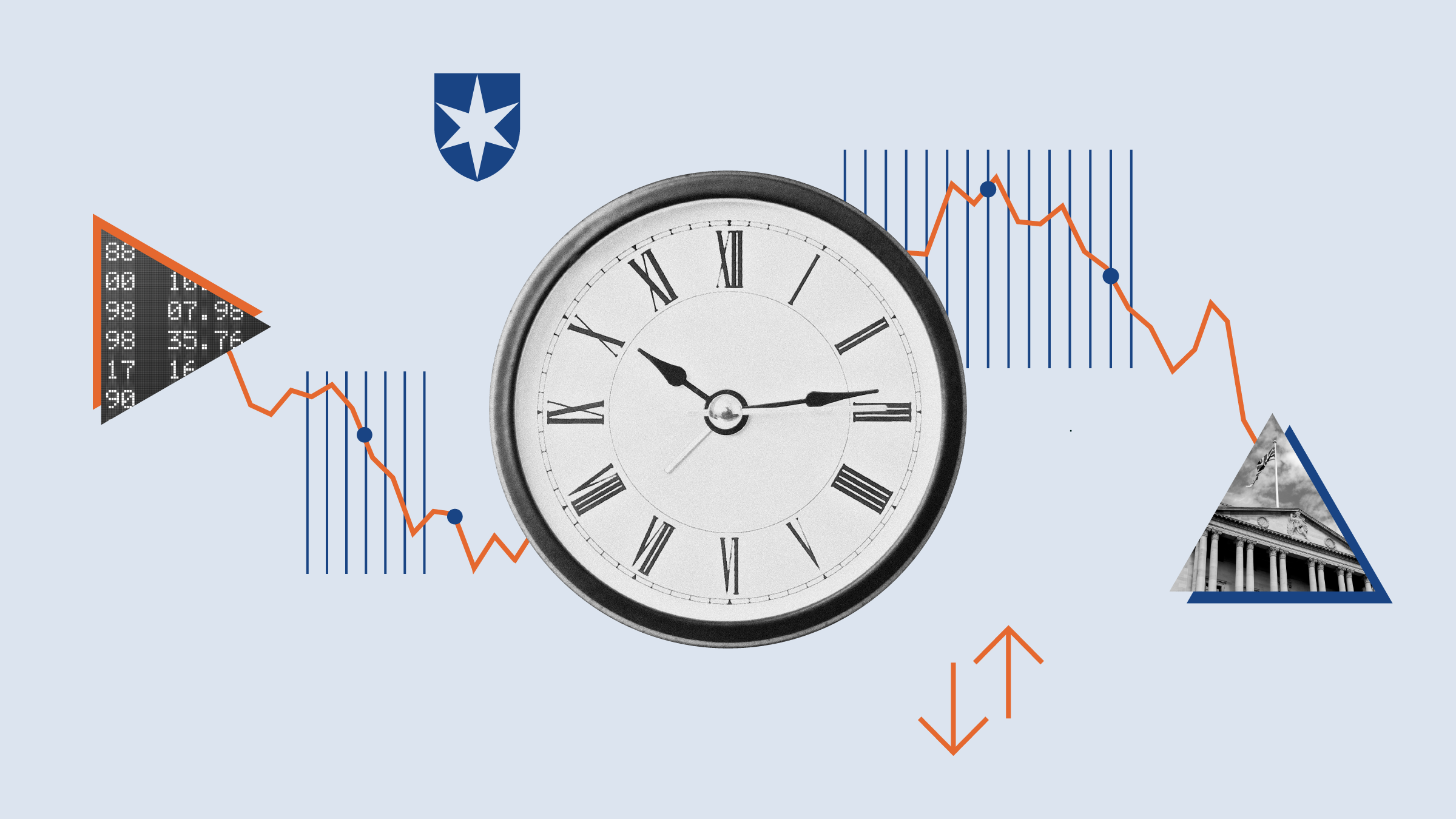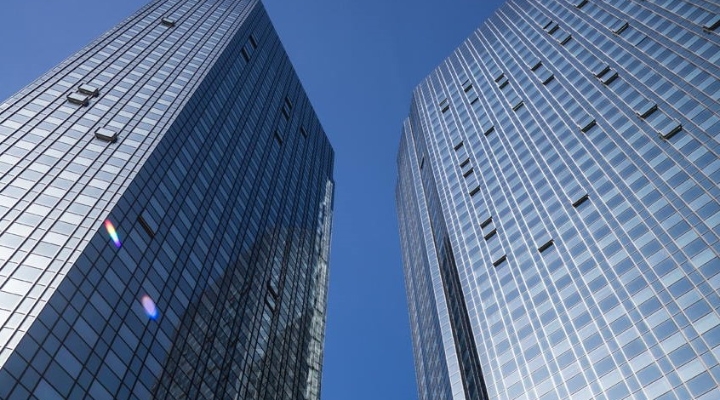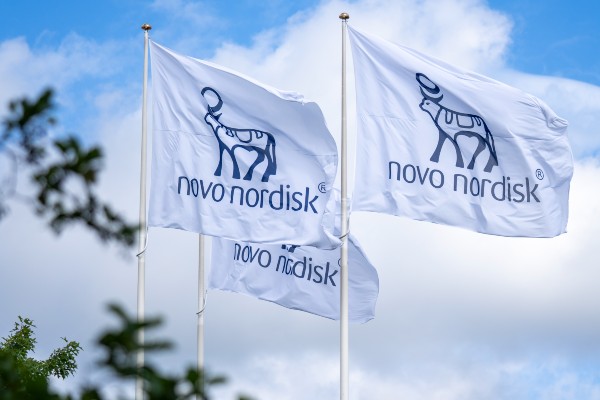(Alliance News) - The following is a summary of top news stories Friday.
----------
COMPANIES
----------
Japanese conglomerate Toshiba will split into three companies, it said Friday, following a campaign by investors to boost the firm's shares after a period of enormous upheaval. The move is the first spin-off by a Japanese firm of Toshiba's size, and analysts said it could be a test case for other domestic conglomerates. The plan approved by the board will spin two companies off from the rest of Toshiba's operations within two years – one focused on infrastructure and the second on devices – with both eventually being listed. "It is an extremely big change, but there is a chance for each business to achieve growth," Chief Executive Officer Satoshi Tsunakawa told reporters. "Toshiba has changed its form and evolved throughout its long history of over 140 years," he added. "We have reached a conclusion that this strategic realignment is the best option."
----------
Mizuho Financial Group increased its full-year guidance after a strong first half after profit surged 79%. The Tokyo-based bank reported attributable profit of JPY385.66 billion, around USD3.38 billion, in the six months to September 30, up 79% from JPY215.52 billion last year. Ordinary income was broadly flat at JPY1.579 trillion compared to last year's JPY1.576 trillion a year ago. Diluted income per share rose 79% to JPY152.12 from JPY84.98. Mizuho declared a cash dividend of JPY40.00, up 6.7% from JPY37.50 a year ago. The company expects attributable profit of JPY530.00 billion for the current fiscal year, which will end on March 31 next year. This would be 13% higher than last year's JPY471.02 billion.
----------
Chinese games and messaging firm Tencent has acquired the Japanese creative studio behind several hit Nintendo Switch titles, as it seeks to recover from a government crackdown on the gaming sector. Tencent has taken about a 90% stake in Wake Up Interactive for more than JPY5 billion, about USD44 million, Bloomberg News reported, quoting unidentified people with knowledge of the deal. Wake Up owns Tokyo-based Soleil, which helped develop Nintendo Switch hits Ninjala and Travis Strikes Again: No More Heroes, Bloomberg said.
----------
AstraZeneca said its expects "a solid finish to the year, amid double-digit revenue growth, partly thanks to its vaccine against Covid-19. The drug maker said it now expects to "progressively transition the vaccine to modest profitability as new orders are received". However, it said the profit contribution of this to the final quarter of 2021 will be offset by costs related to antibody combination AZD7442, so it left core earnings guidance unchanged for the full year. AZD7442 is a drug cocktail shown to reduce severe Covid-19 or death in non-hospitalised patients with mild-to-moderate symptoms. Astra reported total revenue in the year to date - including Alexion Pharmaceuticals - was USD25.41 billion, up 32% year-on-year. On a constant currency basis, revenue grew by 28% in the nine months to September 30. Total revenue in the third quarter alone increased by 50% to USD9.87 billion. Excluding Astra's Covid-19 vaccine, total revenue increase 21% or 17% at constant exchange rates, in the year to date, to USD23.19 billion, and by 34% in the third quarter to USD8.82 billion.
----------
Compagnie Financiere Richemont reported a sharp rise in profit for the first half of its financial year, with a strong sales performance from across the board due to an increase in demand and consumer activity. The Swiss luxury goods firm, which owns jewellery brands such as Cartier and Van Cleef & Arpels, also said it is in talks with luxury fashion platform Farfetch for expanding on the partnership both companies set up last year. Terms being discussed include Farfetch becoming a minority shareholder in Yoot Net-a-Porter, which will lead to the brand adopting Farfetch Platform Solutions to help with its change into a hybrid first-party and third-party business model. For the six months ended September 30, Richemont posted pretax profit of EUR1.58 billion, more than tripled from EUR344 million a year before.
----------
Daimler Truck said Thursday it plans to make its stock market debut on December 10, following the recent split from its German parent group Daimler, while setting high profitability targets for the coming years. "Daimler Truck is gaining momentum on its way to its intended stock market listing," the Stuttgart-based group said in a statement as it held an event for investors. Daimler group agreed to spin off the truck and bus unit at a meeting in October, calling the new company Daimler Truck and renaming the remainder of the group Mercedes-Benz after its best-known brand. The slimmed-down Mercedes-Benz group will directly hold 35% of Daimler Truck after its stock market listing.
----------
Moderna staked its claim over the intellectual property of its Covid-19 vaccine, rejecting a claim that the US government was a co-inventor of its messenger RNA technology. Massachusetts-based Moderna on Thursday, laying out its defence in regard to patents, said it disagrees with claims that National Institute of Allergy & Infectious Diseases scientists "co-invented" the mRNA sequence of the vaccine. The company said that in September, it offered to resolve its dispute with the NIAID by making the government co-owners of the patent applications. However, only Moderna scientists would have been listed as inventors.
----------
MARKETS
----------
London's FTSE 100 index was an outlier on Friday, pulled down by AstraZeneca and a rebounding pound, as other European markets followed Asia higher. In Tokyo, Toshiba closed 1.3% lower after confirming plans for a three-way split. Wall Street was called for a slightly positive open. In London, Astra was down 4.5%. "The acquisition of Alexion means Astra's sales numbers have soared," commented Nicholas Hyett, equity analyst at Hargreaves Lansdown. "But impairments, additional operating costs post acquisition, new drug launches and the fact the groups still makes no profit on vaccine sales all mean profit margins are down substantially."
----------
CAC 40: up 0.2% at 7,073.84
DAX 40: up 0.1% at 16,100.12
FTSE 100: down 0.5% at 7,349.48
----------
Hang Seng: closed up 0.3% at 25,327.97
Nikkei 225: closed up 1.1% at 29,609.97
S&P/ASX 200: closed up 0.8% at 7,443.00
----------
DJIA: called up 0.1%
S&P 500: called up 0.1%
Nasdaq Composite: called up 0.2%
----------
EUR: down at USD1.1441 (USD1.1462)
GBP: up at USD1.3393 (USD1.3381)
USD: flat at JPY114.06 (JPY114.02)
Gold: down at USD1,849.46 per ounce (USD1,861.20)
Oil (Brent): down at USD81.84 a barrel (USD82.48)
(currency and commodities changes since previous London equities close)
----------
ECONOMICS AND GENERAL
----------
Industrial production in the eurozone slipped in September when compared with August but still remained well above prior-year levels, figures from Eurostat showed. Seasonally adjusted industrial production fell by 0.2% month-on-month in the euro area in September and by 0.5% in the EU as a whole. In August, industrial production had fallen by 1.7% in the euro area and by 1.5% in the EU when compared to July. On a year-on-year basis, industrial production in September increased by 5.2% in the euro area and by 5.0% in the EU.
----------
Wholesale selling prices in Germany increased by 15% in October from a year before, data from Destatis showed. This was the highest annual rate of change since March 1974 after the first oil crisis, when prices grew by 16% year-on-year. In September and August, the annual rates of change had been 13% and 12%, respectively. Destatis explained that the move was driven by increased prices for raw materials and intermediate products. The largest impact was from mineral oil products, whose prices jumped 55% year-on-year.
----------
A draft statement of the COP26 summit called on nations to ease their reliance on fossil fuels as talks entered their final hours without any sign of delivering the emissions cuts needed to limit global warming to 1.5C. After two weeks of round-the-clock negotiations, delegates produced a round-up of their progress, which urged governments to accelerate "the phaseout of unabated coal power and of inefficient subsidies for fossil fuels". Delegates in Glasgow from nearly 200 nations are charged with keeping the Paris Agreement temperature goals alive. The summit began with a bang as world leaders descended on Glasgow armed with a string of headline announcements, from a commitment to slash methane emissions to a plan to save the rainforests. But progress has stalled in the underlying technical and now minister-level negotiations.
----------
US President Joe Biden is expected to hold a hotly awaited virtual summit with his Chinese counterpart Xi Jinping on Monday, US media reported, as tensions mount over Taiwan, human rights and trade. Both CNN and Politico, citing unnamed sources, said the meeting was tentatively scheduled for Monday. Relations between the world's two largest economies have deteriorated in recent weeks, in particular over Taiwan, a self-ruling democracy claimed by China, which last month made a record number of air incursions near the island. Washington has repeatedly signaled its support for Taiwan in the face of Chinese aggression, but the US and China reached a surprise agreement on climate at a summit in Glasgow. US Secretary of State Antony Blinken said this week that the two presidents, who have not met in person since Biden took office in January, will hold virtual talks "soon."
----------
The latest round of talks with the EU to rehash the UK's post-Brexit trade arrangements for Northern Ireland are due to begin in London. The government's chief negotiator to the EU, David Frost, is to meet European Commission vice-president Maros Sefcovic on Friday, in the latest round of talks about the Northern Ireland Protocol. In October, the EU offered a series of changes to the protocol, which would remove 80% of checks on goods between Northern Ireland and the UK mainland. But the UK government wants further alterations, including removing the role of the judges in the European Court of Justice as the arbitrators of disputes. The talks over the protocol, which is designed to maintain free-flowing borderless trade on the island of Ireland, remain deadlocked.
----------
Most businesses in the UK are increasing their prices amid "acute" staff shortages and the rising cost of fuel and energy, research suggests. A survey of 1,000 firms showed that four out of five increased the price of their goods or services in the past year. The British Chambers of Commerce said its study indicated that nine out of 10 manufacturers and three quarters of businesses with more than 50 employees had a shortage of skilled workers in their own business or those in their supply chain. HGV drivers, engineers, warehouse staff, accountants, chefs and IT technicians were among the skilled staff said to be in short supply. Many respondents cited the increased cost of vehicle fuel, shipping containers and utilities such as gas or electricity.
----------
By Tom Waite; thomaslwaite@alliancenews.com
Copyright 2021 Alliance News Limited. All Rights Reserved.































